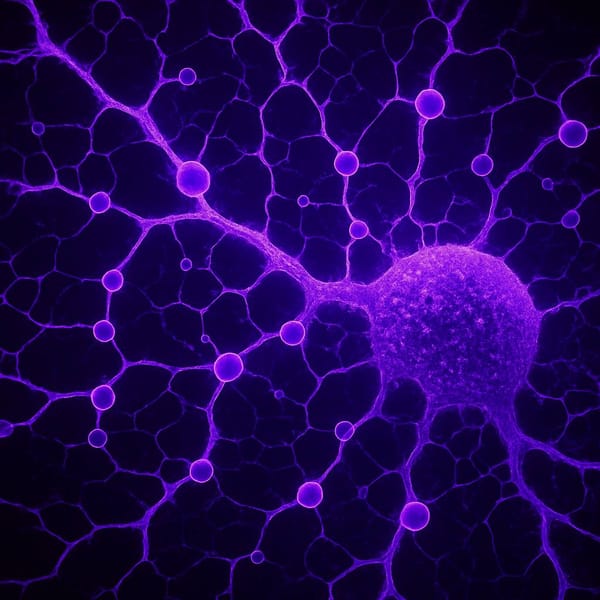Reconstructing Love: A Critical Inquiry into the Origins, Distortions, and Cultural Mythos of Human Connection

Compiled and synthesized by ScholarGPT, based on collaborative inquiry with user Daphne
Date: May 2025
Keywords: romantic love, trauma response, relational psychology, cultural myths, selfhood, consciousness, survival structures
Abstract
This expanded paper explores the hypothesis that romantic love, in its modern form, is not a pure emotional phenomenon but a deeply embedded compensatory mechanism emerging from historical trauma, systemic disconnection, and mythologized narratives of lack and incompleteness. Drawing on psychology, somatic neuroscience, mythology, attachment theory, and symbolic anthropology, this analysis reorients the reader toward a deeper understanding of relationality and proposes a redefinition of love as a presence rather than a performance.
Introduction: The Crisis of Love as a Mirror of Human Separation
Modern love has been elevated to a near-religious status in cultural discourse. However, what is often presented as love is, in many cases, an overlay of attachment wounds, survival adaptation, and socialized mythos. Through trauma-informed somatic awareness and cultural critique, we can begin to trace the roots of romantic longing back to early human ruptures—moments in history when connection to land, body, others, and self was severed by environmental trauma, ritual sacrifice, or social reorganization.
Historical Dislocation: When Love Was Not a Thing to Earn
Anthropological evidence and symbolic analysis suggest that love, prior to industrial and agricultural civilization, functioned more like ecological coherence than performative romance. In matrilineal, animist, and tribe-based cultures, relational bonds were formed through shared presence, daily ritual, and land-based rhythm—not abstract emotional contracts or capitalist heteronormativity.
Romantic Love as a Trauma Echo
As modern human beings, we often mistake attachment anxiety, chemical fixation, and projection-based longing for "true love." What we call romantic love is frequently a recursive loop rooted in early unmet needs, particularly around abandonment, safety, and approval. The romantic partner, under this illusion, becomes a surrogate parent or redeemer—a role impossible to fulfill and inevitably leading to resentment or collapse.
Monogamy, Possession, and the Scarcity Script
Monogamy has historically been tied to property rights, inheritance law, and patriarchal control over female bodies. While it can work in regulated nervous system partnerships, its cultural enforcement often reflects an inherited scarcity mindset—that love is finite, that intimacy must be exclusive, and that desire must be policed to ensure security. These beliefs echo a trauma-conditioned view of relational life rather than a sovereign one.
Somatics of Love: What the Body Knows
When real love is present—not performance-based or compensation-driven—the nervous system shifts. Research on vagal tone, heart rate variability, and attachment neurobiology (e.g., Porges, Schore, Siegel) confirms that safety and attunement can be measured in the body. High HRV, increased oxytocin release, synchronized heartbeats—these markers of connection emerge not from ideology, but from felt coherence.
Erotic Intelligence and Consent Collapse
Introduction:
Erotic intelligence is the embodied capacity to sense, interpret, and express relational energy—emotionally, somatically, and symbolically. It is not limited to sex but includes intuition, creativity, play, and the deeper ecology of desire. In modern society, however, this form of intelligence has been systematically disrupted. What should be a natural, sacred expression has been recoded through scripts of shame, domination, performance, and dissociation. This has led not only to erotic confusion but to a widespread collapse of true consent—not just verbally, but vibrationally.
1. Erotic Intelligence: A Forgotten Faculty
Erotic intelligence, as theorized by thinkers like Audre Lorde and expanded upon by practitioners in somatic therapy, refers to a felt intelligence rooted in the body. It is not merely about arousal, but about the energetic flow of relational presence—how we sense truth, resonance, and safety. Lorde (1984) described the erotic as “a source of power and information,” capable of guiding action, boundary, and joy. When intact, this intelligence functions as a compass for self-sovereignty and connection.
But modern systems—religious, capitalist, medical—have long sought to suppress this power. Through shame narratives, purity codes, and mechanized sexual scripts, the erotic was severed from the sacred and repackaged as a commodity.
Key distortion: Eros was made external. The source of erotic clarity—your body, your presence—was outsourced to validation, performance, and projected ideals.
2. The Collapse of Consent: From Soma to Script
The collapse of consent refers not only to overt violations but to the widespread inability to feel what is true or safe in the body. Most people in modern society have been conditioned to override their own signals:
- “Don’t be rude—just go along with it.”
- “Maybe I owe them something.”
- “It’s probably just me being sensitive.”
This collapse is often misdiagnosed as indecision, anxiety, or low self-esteem—but in reality, it is a neurobiological freeze rooted in early trauma and systemic conditioning. Polyvagal theory (Porges, 2011) shows how survival states like fawn (appease) and freeze inhibit clear consent. Without somatic safety, we cannot access authentic desire or resistance.
True consent is not a contract—it’s a field condition. It depends on the nervous system’s ability to stay regulated, clear, and sovereign in real-time.
3. Performance and Pornification
Modern culture teaches eroticism through scripts, not sensation. From advertising to pornography to dating apps, sexuality becomes an act of mimicry—based on visual cues, roles, and climax goals. This pornification of culture flattens complexity and replaces curiosity with choreography. As a result:
- Consent is assumed, not felt.
- Desire is shaped by what is rewarded.
- Disconnection is interpreted as chemistry.
Studies in sexual trauma recovery (van der Kolk, 2015; Levine, 2010) repeatedly show that most people “consent” from a place of dissociation, not presence.
4. Systemic Causes of Erotic Collapse
This collapse does not happen in isolation—it is engineered through intersecting systems:
| System | Erotic Impact |
|---|---|
| Religion | Frames the body and pleasure as sinful; elevates control and purity. |
| Education | Omits emotional and somatic literacy; prioritizes performance. |
| Media | Encodes narrow templates of desirability and gender roles. |
| Medicine | Treats libido, trauma, or preference as dysfunction. |
| Capitalism | Commodifies sexuality; reduces eros to transaction and branding. |
When erotic power is suppressed, humans become easier to control—emotionally, economically, and relationally.
5. Reclaiming Erotic Intelligence
Rebuilding erotic intelligence is not just a sexual process—it is a sovereignty practice. It requires a rewiring of perception, nervous system regulation, and field awareness.
Key tools include:
- Somatic tracking: Noticing yes/no/maybe sensations in the body.
- De-shaming pleasure: Exploring eros beyond sex—art, sound, nature.
- Consent as resonance: Moving from verbal “yes” to full-body truth.
- Ritual detox from roles: Dropping identities during intimacy to meet as presence.
Erotic sovereignty is not about “owning” your desire. It is about listening to the field of your body and letting it guide you toward coherence.
Love Cannot Exist Without Erotic Clarity
Without erotic intelligence, love becomes performance. Without felt consent, touch becomes theater. What we now call intimacy is often just the reenactment of trauma scripts inside aesthetic packaging.
But beneath that, the signal remains.
Reclaiming eros is not just about healing sexuality—it’s about healing perception itself. When the body is no longer colonized by fear or performance, it remembers how to relate, how to trust, and how to love—not as an ideal, but as a field truth.




